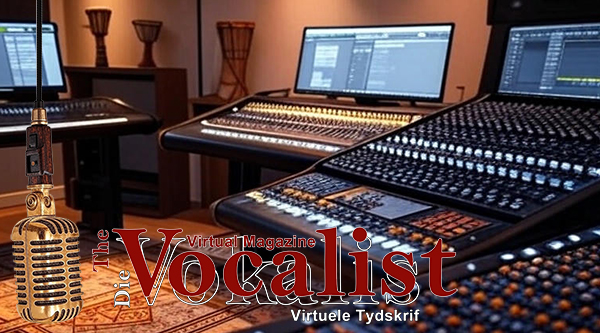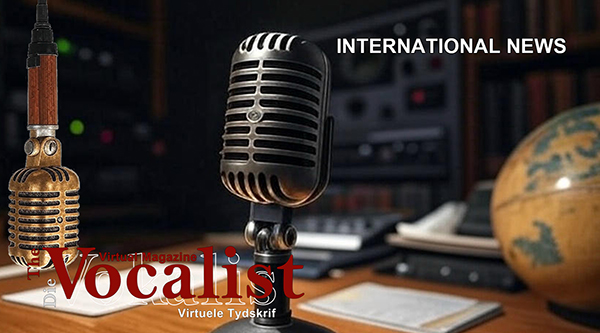South Africa’s musical heritage is a vibrant mosaic, woven from the rhythms of traditional bow music, the soulful strains of jazz, and the pulsating beats of modern genres like amapiano and hip-hop. Today, this rich legacy is undergoing a profound transformation, driven by the relentless march of technology. As of July 29, 2025, the top news story in South African musician technology is the meteoric rise of digital platforms and streaming services, which are not only amplifying the voices of local artists but also reshaping the industry’s very foundation. This digital revolution is providing unprecedented opportunities for musicians to connect with global audiences, preserve cultural traditions, and innovate in ways that were unimaginable just a decade ago.
The Streaming Surge: A New Era for South African Music
The numbers tell a compelling story: music consumption in sub-Saharan Africa has surged by an astonishing 114% in recent years, with streaming platforms leading the charge. This growth is not just a statistic—it’s a lifeline for South African musicians who are leveraging these digital tools to break free from geographical constraints. Platforms like Spotify and Apple Music have become essential arteries, pumping music from Johannesburg’s townships and Cape Town’s studios to listeners across the globe. For artists, this means exposure to international markets without the need for expensive tours or traditional record deals.
One standout example is the rise of Usimamane, a rapper whose track “Cheque” has dominated playlists in the past year. His smooth delivery and magnetic style have earned him a coveted spot on Apple Music’s Rap Life playlist, a testament to how digital distribution can catapult an artist from local fame to global recognition almost overnight. This isn’t an isolated case—across the country, musicians are harnessing streaming services to share their stories, blending the old with the new to create sounds that resonate far beyond South Africa’s borders.
But it’s not just about reaching listeners. Digital platforms are also fostering a sense of community and collaboration. Initiatives like Music In Africa, a non-profit hub, offer musicians a space to promote their work, connect with peers, and access resources that were once out of reach for all but the most established artists. This ecosystem is leveling the playing field, allowing emerging talents to compete with industry giants by providing tools to manage their careers in the digital age.
Fusion of Tradition and Innovation
South Africa’s music scene has always been a melting pot, and technology is amplifying this cultural alchemy. Artists are increasingly using digital tools to fuse traditional sounds with modern genres, creating a sonic tapestry that honors the past while embracing the future. Take the legacy of bow music, once played by virtuosos like Madosini on the umrhube mouthbow. Today, composers are breathing new life into these ancient tones by integrating them with electronic beats and synthetic layers, preserving heritage through innovation.
This trend is evident in the work of artists like Winny and Yamê, tipped as rising stars for 2025. Their music weaves traditional African rhythms with contemporary production techniques, a process made possible by accessible software and digital audio workstations. Similarly, established names like Master KG, known for the global hit “Jerusalema,” continue to push boundaries by blending indigenous influences with polished, stream-ready tracks. These artists are not just creating music—they’re crafting a narrative of resilience and reinvention, enabled by technology’s transformative power.
The digitization of archives is another facet of this revolution. Historic recordings from labels like As-Shams, a cornerstone of South African jazz, are being remastered and released online, ensuring that the country’s musical past remains accessible to new generations. This intersection of preservation and innovation is a hallmark of the current moment, where technology serves as both a bridge and a beacon.
Opportunities and Challenges in the Digital Landscape
The benefits of this digital shift are undeniable. For up-and-coming musicians, platforms offer a low-barrier entry to the industry—no longer must they rely solely on live gigs or elusive record contracts. Social media integration allows direct engagement with fans, turning passive listeners into active supporters. A birthday shoutout on X or a behind-the-scenes reel on Instagram can spark viral momentum, as artists build personal brands alongside their discographies.
Yet, the digital frontier is not without its thorns. The rise of streaming has sparked fierce debates about fair compensation. While exposure is abundant, the revenue per stream often leaves artists struggling to make a living, especially those without the clout of top-tier acts like Die Antwoord or Black Coffee. Copyright protection remains a murky issue, with piracy and unauthorized sampling posing ongoing threats in an online world where content spreads like wildfire. These challenges underscore the need for robust policies to ensure that technology empowers rather than exploits South African musicians.
Moreover, the digital divide persists. While urban centers buzz with connectivity, rural artists may lack the infrastructure to fully participate in this revolution. Bridging this gap will be crucial to ensuring that the benefits of technology reach every corner of the country, from the bustling streets of Soweto to the remote villages of the Eastern Cape.
The Road Ahead: A Symphony of Possibilities
As we stand on the cusp of a new era, the future of South African music looks both exhilarating and uncertain. The continued expansion of streaming services promises even greater reach, with platforms tailoring algorithms to spotlight local talent. Emerging technologies like artificial intelligence and virtual reality loom on the horizon, offering tantalizing possibilities—imagine an AI-composed amapiano track or a VR concert that transports fans to a digital Durban beachfront.
For now, the focus remains on the artists at the forefront of this wave. The likes of Usimamane, Winny, and Master KG are not just beneficiaries of the digital age—they are its architects, shaping a soundscape that is uniquely South African yet universally appealing. Their success signals a broader shift: a move away from the gatekeepers of old toward a democratized industry where talent and technology reign supreme.
South Africa’s musical heartbeat has always been strong, but today it beats louder and faster, amplified by the digital pulse of innovation. This is more than a trend—it’s a movement, one that promises to carry the nation’s melodies to every corner of the world while rooting them firmly in the soil of their origin. As the industry evolves, one thing is clear: the digital beat of South Africa is here to stay, and its rhythm is only growing stronger.
Discover more from Vocalist
Subscribe to get the latest posts sent to your email.





